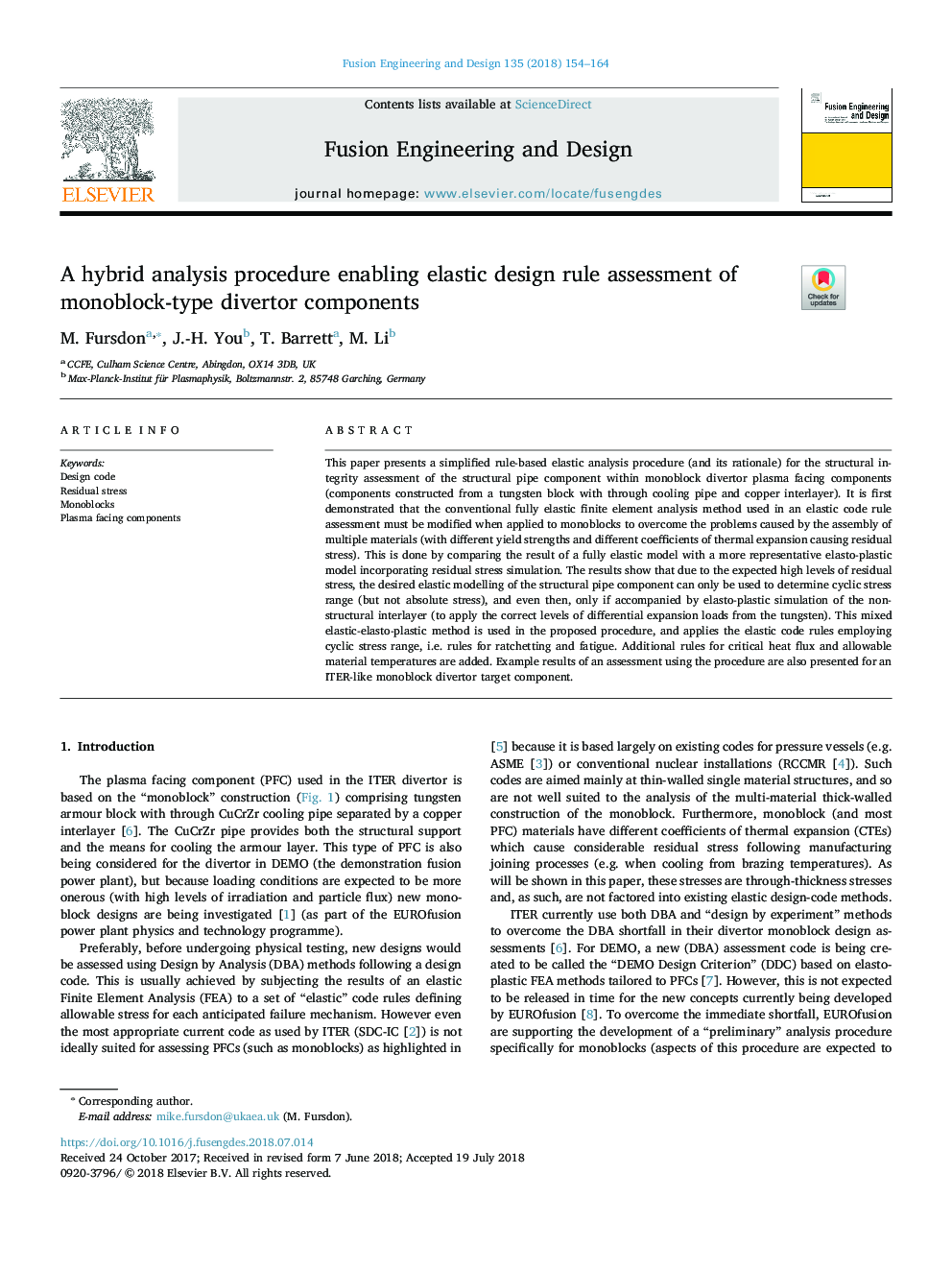| Article ID | Journal | Published Year | Pages | File Type |
|---|---|---|---|---|
| 6742768 | Fusion Engineering and Design | 2018 | 11 Pages |
Abstract
This paper presents a simplified rule-based elastic analysis procedure (and its rationale) for the structural integrity assessment of the structural pipe component within monoblock divertor plasma facing components (components constructed from a tungsten block with through cooling pipe and copper interlayer). It is first demonstrated that the conventional fully elastic finite element analysis method used in an elastic code rule assessment must be modified when applied to monoblocks to overcome the problems caused by the assembly of multiple materials (with different yield strengths and different coefficients of thermal expansion causing residual stress). This is done by comparing the result of a fully elastic model with a more representative elasto-plastic model incorporating residual stress simulation. The results show that due to the expected high levels of residual stress, the desired elastic modelling of the structural pipe component can only be used to determine cyclic stress range (but not absolute stress), and even then, only if accompanied by elasto-plastic simulation of the non-structural interlayer (to apply the correct levels of differential expansion loads from the tungsten). This mixed elastic-elasto-plastic method is used in the proposed procedure, and applies the elastic code rules employing cyclic stress range, i.e. rules for ratchetting and fatigue. Additional rules for critical heat flux and allowable material temperatures are added. Example results of an assessment using the procedure are also presented for an ITER-like monoblock divertor target component.
Related Topics
Physical Sciences and Engineering
Energy
Energy Engineering and Power Technology
Authors
M. Fursdon, J.-H. You, T. Barrett, M. Li,
